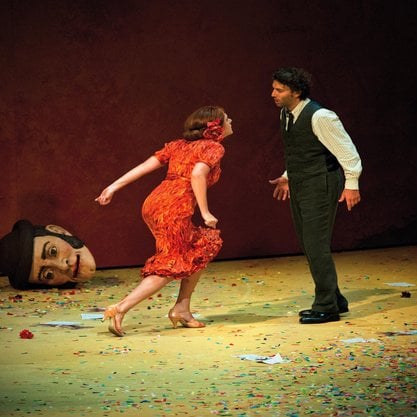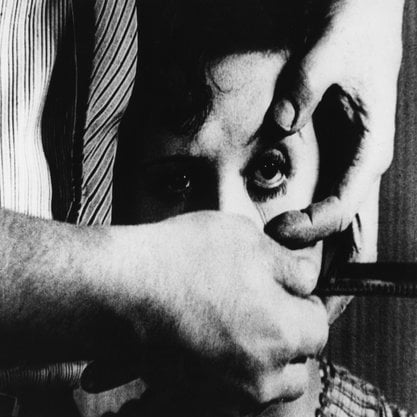Article
Geijutsu-za By Swain, John D.
Article
The first iteration of the Geijutsu-za (Art Theater) was founded in 1913 by the actors Shimamura Hōgetsu (1871–1918) and Matsui Sumako (1886–1919) after they were expelled from Tsubouchi Shōyo’s (1859–1935) Bungei Kyōkai for fraternization. The lovers, Matsui in particular, had been acclaimed for their acting with Bungei Kyōkai, and they continued their successes at the Geijutsu-za. Unfortunately, Shimamura succumbed in November 1918 to the worldwide influenza epidemic, and a distraught Matsui committed suicide two months later. As a result of their deaths, the company disbanded until it was reformed in 1924 by one of the original members, the playwright and director Mizutani Chikushi (1882–1935). The revived company endured until 1945.
The company’s successes from 1913–1918 were the result of Shimamura’s promotional talent capitalizing on the daring charisma of Matsui. The novelty of seeing real women, banned from the Tokyo stage for almost three centuries, and Matsui’s talent and her artistic rivalry with Kawakami Sada Yakko (1871–1946), created a rich vein for Shimamura to mine. In the second Geijutsu-za offering, Matsui created a sensation playing Oscar Wilde’s Salome. The company’s third production, Shimamura’s adaptation of Tolstoy’s Fukkatsu [Resurrection] in 1914, with Matsui playing the role of Katsusha, was one of shingeiki’s greatest popular and commercial hits.


